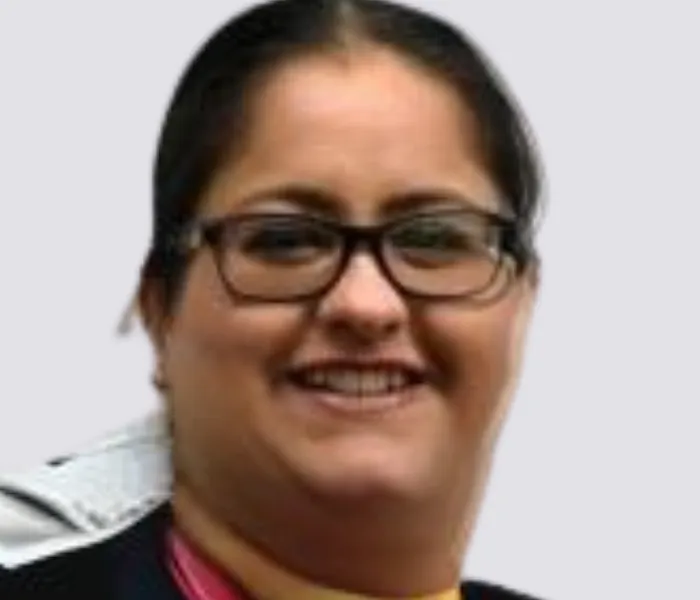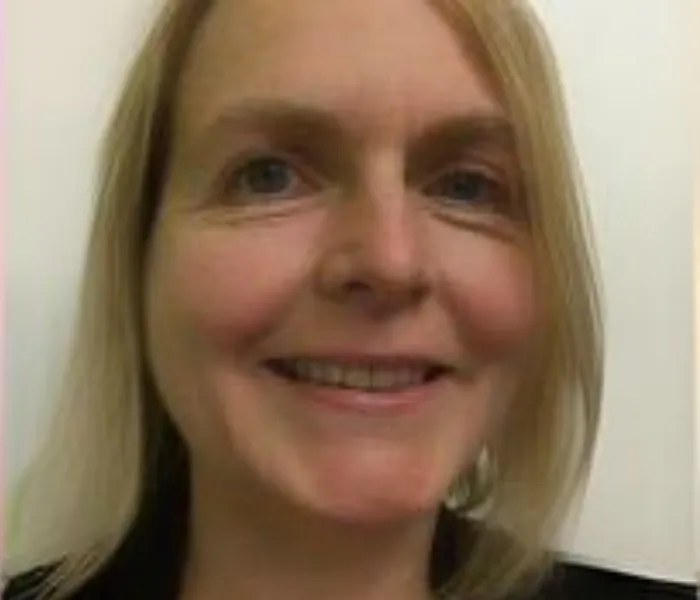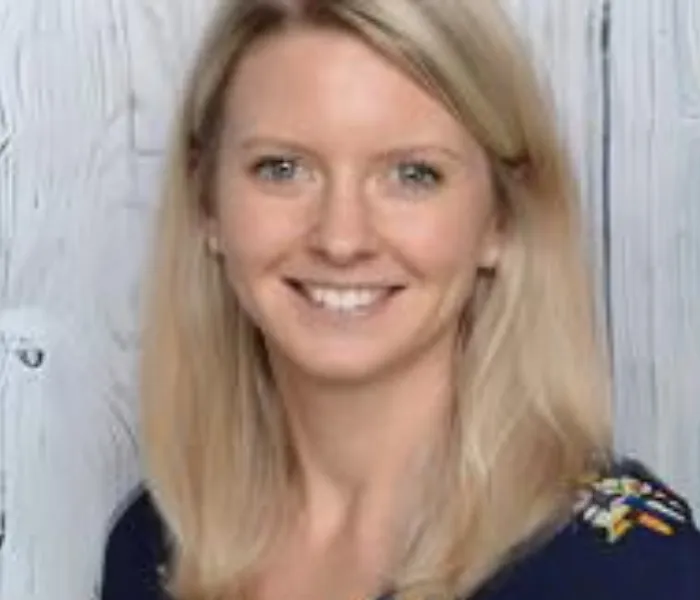Philip Helme – CPT3A
Philip Helme studied the Certificate in Psychometric Testing, Assessment, and Access Arrangements.
Read on to find out how he found his time with us!
What made you choose the Real Training course(s) over other options?
Having researched available courses, I chose the Real Training online course.
Firstly, it allowed me to work at the pace I wanted and secondly, the information on the website was concise and easy to follow.
Also, I contacted Real Training and spoke to Dana who provided me with lots of information and alleviated any concerns.
What was your experience of learning with Real Training?
CCET – The assessments and tasks whilst challenging focused my thinking and structured my learning. I enjoyed all tasks, especially the essays, which I had not done for a number of years. Yes, do it. The whole process was smooth and informative. This is probably the best course model I have ever used. Whenever I contact any of the different departments, they dealt with issues swiftly and in a professional manner.
AAC – Louise, was and is the ultimate professional providing clear and critical advice. She is a real asset to the assessment team with her knowledge and understanding. I was pleased she was my tutor. The tasks were relevant and appropriate with the requirement to know of the latest developments of access arrangements, Equalities Act and JCQ regulation. I found the library and other resources invaluable and would have struggled without them.
I have thoroughly enjoyed coming back to studying and will look to continue in the future. Go ahead and do it, I have found it quite invigorating especially through the academic challenge it sets. Admin and finance were exceptional, technical was not need so by default were very efficient.
How has the course(s) helped make an impact at school?
CCET – A more focused approach to supporting students, with clear and measurable interventions specific to their needs. We have developed a reading fluency group that will work on improving reading for students who have been identified as needing support.
AAC – The ability to put in place interventions and support at an earlier stage so that normal ways of working or adjustments can be made at the earliest possible time. We have moved to test identify students as early a possible (start of year 10) and provide vital information to teachers, parents, SENCO etc.
How has the course(s) helped develop you as an educational professional and what do you hope to achieve with the new knowledge/skills in the future?
CCET – Awareness of testing and how the results can be utilised.
AAC – Ability to undertake tests and identify the needs of students.
Like Philip Helme, learn to become a qualified access arrangements assessor at Level 7 by enrolling in our CPT3A course. More information about the course can be found here. Alternatively, feel free to call one of our Admissions Advisors on + 44 (0)1273 358080.
Navjot Sandhu – NASENCO, Speech, Language & Communication Needs
Navjot Sandhu has completed the National Award in SEN Coordination and the Speech, Language and Communication Needs postgraduate certificate.
Find out more about her time studying with us!
What made you choose the Real Training course(s) over other options?
I discovered Real Training in 2013 when I was looking to complete a Postgraduate qualification in Speech, Language and Communication Needs. I needed to gain this qualification as part of my promotion to Head of Resource Base at my setting.
The structure of the course, linking it to workplace practice and being able to work through the strands at my own pace were very appealing to me and suited both my work and home situations. I successfully completed this qualification in 2016 and then came back to Real Training when asked by my Headteacher to complete the NASENCO.
What was your experience of learning with Real Training?
As previously, my experience with Real Training has been fantastic.
Campus Online and all the tools available within this (EBSCO, discussion boards, Assignment Libraries….) were really beneficial and useful. The flexibility to complete strands and tasks at my own pace and order was convenient and allowed me to spend extra time on the strands and areas that I needed to focus on and develop further. The variety pf tasks that needed to be completed were interesting and thought-provoking. The learning logs and applied practice tasks were the most useful for me. However, completing the MA assignments were challenging at times but really interesting.
The support I received from my Tutor – Helene- was fantastic! She always provided me with really helpful and useful feedback. I am really grateful for the extra support she gave me when I was really struggling with one of my assignments. The support and reassurance she has provided throughout the course has been invaluable. Thank you so much, Helene!!!!
To anyone unsure about completing courses online with Real Training – Don’t hesitate – do it. I have now completed 2 courses with Real Training and have found both of them absolutely great!
How has the course(s) helped make an impact at school?
I am more critical and analytical of the provision and support in place for students to ensure they have the best learning outcomes.
I have led staff training linked to my project and am able to more confidently support staff across the setting in ensuring that students needs are being catered for and met, as well as ensuring staff are meeting the requirements of SEND legislation and policy.
How has the course(s) helped develop you as an educational professional and what do you hope to achieve with the new knowledge/skills in the future?
Completing this qualification has been challenging, stimulating and inspiring. Each strand and each assignment has developed my knowledge, understanding, practical application and confidence in the multi-faceted role of a SENCo I have developed a secure understanding of SEND and the role of a SENCo, and how it is always changing, shifting, developing – something which I know I will need to keep abreast of and ensure is implemented at ground level, when I take on the role of Acting SENCo at my setting.
To learn more about the modules Navjot Sandhu completed, please visit the links below:
Laura Phillips – NASENCO
Laura Phillips studied the National Award for SEN Coordination with us at Real Training.
Read on to find out more about her study experience with us!
What made you choose the Real Training course(s) over other options?
The Real Training NASENCO course was recommended to me by colleagues who had already completed the course.
It also appealed to me as I didn’t have to have any days off of work to attend university lectures.
What was your experience of learning with Real Training?
Anne has been fantastic. She has answered all my questions in a really clear and concise way. The feedback given to all the work submitted has been exceptionally prompt meaning that I can work on the improvements immediately and haven’t had to wait weeks to hear. The improvements suggested have been really helpful. Thank you very much.
An amazing course. I loved how accessible it was. I could work in the evenings/ weekends/ holidays etc. It fitted around my workload easily as there are no formal deadlines apart from the one a year on from when you start. As everyone’s workloads are different this is ideal. There were no university visits so no time off of work. The website was easy to use and navigate around. My Tutor was fantastic, and always available for support. I would really recommend booking a course with Real Training.
Really good tasks and assignments meaning everyone can relate them to their own setting and role that they are currently undertaking. This meant they were really accessible. All tasks and assignments helped me to gain a greater knowledge of the Role and Responsibilities of a SENCO.
How has the course(s) helped make an impact at school?
I have formed a greater understanding for the SEN Code of Practice and how it is implemented in our school. With specific child centred focus – with an Assess/Plan/Do/Review approach to all decisions made.
Sharing knowledge and Skills through leading CPD sessions.
Implementing change for collection of data.
How has the course(s) helped develop you as an educational professional and what do you hope to achieve with the new knowledge/skills in the future?
A greater understanding of the bigger picture of SEND. A greater understanding of how our school supports SEND pupils I am currently not the SENCO so was able to work with her to form a greater understanding of a SENCO role at our school.
I have learnt about me and my personality to help me in this role.
I have learnt more about the structure of our school and how the SEND department operates.
I have been able to collaborate with other schools.
Anna Russell – CPT3A
Anna Russell completed the Certificate in Psychometric Testing, Assessment and Access Arrangements.
She is now looking to study the Dyslexia: Professional Report Writing and complete the full Masters in Education!
Which course(s) have you completed with Real Training?
CCET/AAC and I am now looking to extend this to study the Dyslexia: Professional Report Writing course to give me the Postgraduate Diploma SEND and then the Enquiry Based SEND Practice to get the Masters in Education.
I will study both with Real Training due to the course content delivered and the support I received whilst previously studying with them. I feel the courses are designed so well that I will have the confidence and skills needed to take the next steps in supporting our students even further.
What made you choose the Real Training course(s) over other options?
The course provided by Real Training was recommended by a colleague in another school. She advised me that it is a ‘full on’ course so I went in with my eyes wide open but at no point was I made to feel I was not going to succeed and be very good at my job when the course was finished. The intensive residential route appealed to me because I wanted to get away from the demands of my current job and be in an environment where we were all striving for the same goal. Being away from school enabled me to distance myself from everything else and therefore gave me the thinking space to concentrate on the course and the assessments.
I would recommend this route and using Real Training and their trainers to anyone, to ensure they successfully gain certification in a quick and professionally supportive manner.
What was your experience of learning with Real Training?
Feedback was always prompt; the same day at least and often within the hour. Barry provided professional and constructive feedback and with his help, I feel my work has been of a high standard. His presentation style on the intensive course days is engaging and knowledgeable. He gives you the confidence that the knowledge he is passing on, is valuable.
Barry has been a fantastic tutor throughout. He must work all hours as my feedback was always prompt and informative. He has helped me shape my current practice and has even had an input on my development plan. I can’t thank him enough.
The course was up to date and informative. All of our objectives were met on the day and the assignments ensured the theory was embedded and we are competent with our own practice.
The resource library was useful as a starting point for assessments but also for sharing policies and consent form ideas etc. Access to the e-library for assignment writing was excellent as so many of these resources have restricted access otherwise.
Having the resources available before the start of the course allowed me time to read through the paperwork prior to learning. This was important for me; someone that likes to digest the information at their own pace!
With Real Training you get professional, informative and helpful guidance from start to finish. Don’t go to any one else!
How has the course(s) helped make an impact at school?
Identification of needs has improved and staff awareness of the wave 1 in class intervention that can take place is better. Students feel better supported due to the knowledge staff now have on individual needs and what the assessment data shows the need to be. The knowledge staff have now, based on the training I have been able to pass on, means the class room experience is more inclusive.
I feel we are able to screen more students and even if this means the outcomes are good and no access arrangements need to be in place, at least we are all reassured we are doing the best for all of our students.
How has the course(s) helped develop you as an educational professional and what do you hope to achieve with the new knowledge/skills in the future?
Understanding the statistical analysis has informed my report writing and assessment feedback. I can write and speak confidently about these results now.
Sharing ideas with colleagues in a similar position has saved time and has proved to be a valuable moderation exercise.
The filming exercises were great! Daunting at first but now a useful tool for moderation and for ensuring we have consistency in the department moving forward.
Running through the AA process from start to finish has made me more aware of why we do, what we do!
I am happy now asking staff for their feedback as I now understand the full importance of this when making a valid application for AA.
I have improved the paper trail for AA applications to gather the necessary evidence to make an informed application.
Katie Morris – CCET, Speech, Language & Communication Needs
Katie Morris has studied the Certificate of Competence in Educational Testing and the Speech, Language and Communication Needs.
Find out more about her study experience with us!
Why did you decide to study with us?
I chose Real Training based on the recommendation of a friend. I wanted to be able to access a flexible course which would fit around my work and allow me to work at a pace which suited me.
What was your experience of learning with Real Training?
SLCN – Constructive feedback which has supported the completion of tasks. The critical analysis of speech and language needs as this allowed me to broaden my understanding within the working place. In addition to this the presentation as it allowed my to feel confident to support my colleagues in their understanding of speech and language needs. They have both developed my professional practice and my approach to assessing children for speech and language needs. Resources were clearly structured with examples to support. Easy access to materials and online resources. My own awareness and understanding of SLCN and the impacts that these can have on children.
CCET – My tutor answered questions quickly and was extremely helpful. Thanks! Completing the confidential report was the most helpful as this is something that I will use in my daily practise. Great course and has developed my testing skills as a SENCO.
How has the course(s) helped make an impact at school?
SLCN – I have developed the assessment processes used to identify students with SLCN. I have also increased the training and resources available to teachers surrounding SLCN based on my own increased confidence.
CCET – by developing testing process to support with referrals and recommendations for interventions across the school.
How has the course(s) helped develop you as an educational professional and what do you hope to achieve with the new knowledge/skills in the future?
SLCN – There has been more of a focus for student involvement. There has been a greater understanding of support and provision required in the classroom.
CCET – Referral of pupils, testing of pupils and understanding the needs of students.
Jasvinder Ashan – NPQH
Jasvinder Ashan studied the NPQH with us. Read on to find out more about her experience!
Why did you decide to study with us?
With such a busy role at school, an online NPQH was ideal as I could manage the workload much better. When this was suggested by the Headteacher I was working with at the time, I felt it was a good way to complement and develop my leadership role but at the same time not be intrusive or add more workload.
What was your experience of learning with Real Training?
Initially I was conscious about not having enough support as it was online. I can say whole heartedly that Joan has been extremely supportive and reachable throughout the course. I nearly gave up on this course a few times due to work related pressures and not being able to meet my deadlines but Joan’s support has ensured that I have completed it. The course itself has made me grow immensely as a leader. I feel that I am much better equipped for the role now. Liaising with other people on the course has been invaluable and helped me to reflect a lot. The coaching sessions with tutors and other headteachers were brilliant. I will definitely be recommending Real Training other colleagues.
How has the course(s) helped make an impact at school?
The project has definitely raised standards in my previous infant school as it helped staff grow and raised expectations. Since then I have moved schools and I can honestly say I am much more equipped to lead a larger school alongside the headteacher and when deputising in her absence. I feel I have much more knowledge about the role of a headteacher, and my skills in leading teams effectively, managing others, and finance-related tasks have particularly grown.
How has the course(s) helped develop you as an educational professional and what do you hope to achieve with the new knowledge/skills in the future?
My leadership ship skills have grown two fold. I have changed my styles based on all the research and models I have learnt about.
My whole leadership style has changed. My 360 was an eye opener as I did not realise how valued I was by staff and how much they respected me as a leader. The areas to develop helped me grow even more. I have also helped grow my previous setting based on all the learning and developed others to the point that I can leave knowing they have the capability to maintain the high standards I have set.
My projects have given me confidence in leading necessary initiatives linked to the SDP.
Sarah Johnson-Motyl – NASENCO, CCET, Enquiry-Based SEN Practice, Dyslexia – Leadership & Intervention
Sarah Johnson-Motyl has studied a lot of courses with us at Real Training!
Read on to find out more about her experience with us.
Why did you decide to study with us?
I discovered the Real Training courses when I was searching for an online course that could be flexible around my work and home commitments.
When I started on my journey with Real Training I aspired to achieve the courses which could be combined to achieve a Masters qualification.
At that time I was a single parent with 3 year old twins and a 5 year old, a full time job as a SENCO and so could not be away from home for childcare reasons. This ruled out most courses as weekend commitments were a pre-requisite which I was unable to do. Real Training allowed me to study at the times that suited me (evenings and early mornings) and having an online tutor meant I had flexibility to plan the tutorials and assessment work. I really liked the way the course was structured and it was easy to follow the pathway the from beginning through to final submission.
The admin team and help desk always responded swiftly to any queries and so although the course used a remote model of studying, I never felt at a loss or unsupported. I liked the virtual community and the fact that we could all join groups and discussion threads from wherever we were in the world. This breadth of experience added the experience of being part of a group and we supported each other through this means.
What was your experience of learning with Real Training?
I have studied several courses and I have had a consistent experience with all my Real Training tutors – all have been utterly fabulous. I can honestly say they have been available at short notice for my questions (no matter how small!) and when I have needed additional flexibility to complete coursework they have been 100% supportive.
I like the fact that we are respected as professionals and there is an understanding that juggling family, study, work and of course ‘life’ means that sometimes more flexibility is needed. The encouragement of tutors spurs on any lagging motivation and the online system gives more support than any other course I have done, including face to face courses.
How has the course(s) helped make an impact at school?
I completed the NASENCO course and was able to apply this to both KS1 and KS2 cohorts. By achieving the assessor qualification, I complemented my practice as a SENCO to deepen understanding of complex needs as well as train staff to further enhance their own CPD within SEN. As an experienced SENCO, I mentored international students on their SEND doctorate and MA courses from Exeter University, as well as participated in their research into Lesson Study.
Sarah’s headteacher:
‘Sarah created a whole school assessment plan which meant we identified and addressed SEN at the earliest opportunity. She has driven effective interventions for pupils with both specific learning difficulties as well improving outcomes for these pupils. Her ability to scrutinise assessment data assimilate test scores into necessary individualised programmes of study means nobody slips through the net.’
How has the course(s) helped develop you as an educational professional and what do you hope to achieve with the new knowledge/skills in the future?
I am looking forward to achieving my Masters qualification and also my National Professional Qualification in Senior Leadership. I love studying and am keen to further progress my practise next year.
Not sure which course I will enrol onto next…the world is your oyster with the Real Training programmes!
Catrin Brauner – NASENCO, CPT3A
Catrin Brauner has studied the Certificate in Psychometric Testing, Assessment and Access Arrangements with us, and is currently completing the National Award for SEN Coordination.
Find out more about her study experience with us!
Why did you decide to study with us?
I looked into Real Training as so many people across the UAE had recommended them to me as a good way to increase my knowledge and skills. I initially approached them as I needed to build my skills in understanding access arrangements and assessing learners but quickly realised how much more they had to offer. The range of courses is impressive and it’s easy to plan a CPD route that fits with your interests and other commitments.
The ongoing tutor support is something that made real training a very desirable training provider. I was also very impressed that courses were accredited with Middlesex University which allows people to work towards a Masters Qualification in SEN.
What was your experience of learning with Real Training?
All of the courses I have enrolled on have exceeded my expectations. The first course was a mixture of face to face and online, both parts were delivered seamlessly. The detail and structure that goes into the planning of the courses allows for delegates to feel guided throughout the course, even when there is no face to face element. The course tutors are extremely knowledgeable, approachable and helpful; they respond quickly to any messages and are always willing to help.
I am currently completing the NASENCO course, despite being a UK qualification it is extremely applicable to anyone working in SEN or leadership. The course takes a true 360o approach to ensure delegates have a chance to develop all the skills required to be an inclusive leader of SEND. The course is arranged in a multi-faceted manner which increases engagement and allows people to work to their strengths.
How has the course(s) helped make an impact at school?
The CPT3A course has had a huge impact on the children I work with and the provision we can offer in school, as well as helping me expand my understanding and skills significantly. The skills learnt allow us to understand our pupils in more depth in order to create the provision they deserve. This has been well received by all stakeholders including parents, governors, teachers and the children.
I am currently about halfway through completing the NASENCO course. The course has helped me reflect more on specific areas of what I do and find out what other schools are doing which is hugely helpful. I now have a better understanding of the history of SEN as well as current policy. This has helped me update some school approaches and action plan for the future.
How has the course(s) helped develop you as an educational professional and what do you hope to achieve with the new knowledge/skills in the future?
The CPT3A allowed me to have a deeper understanding of the pedagogy behind a lot of teaching tools and assessments. This has helped me use data to better understand, and therefore support, children’s needs on an individual level.
On the other hand the NASENCO course has taught me more about leadership, strategy and bringing about positive change. I believe both courses have allowed me to be better at my job and allow me to be a better leader and teacher.
Poonam Ahir – NASENCO
Poonam Ahir has studied the National Award for SEN Coordination with us at Real Training.
Read on to find out more about her study experience!
What do you do?
I am a SENCO in a two-form-entry primary school in a very affluent area which also has a very high deprivation rate.
Why did you decide to study the National Award for SEN Coordination (NASENCO) with us?
My MA tutor at a London university recommended Real Training. I told her that my new head teacher wanted to appoint me as a SENCO and she suggested Real Training.
What was your favourite part of the course?
The course has helped me to set up the correct targets, create an action plan and put the right provision in place for the children in my school. It has also given me the right guidance to enable me to hold key meetings with staff, parents and external agencies.
What impact has it had on your professional life?
It’s given me a clear understanding of exactly what I need to do to improve the outcomes of the children in my care. I could do it while I was either at work or at home. So, I could pull up my case studies and have them to hand at work to use and reflect on. Then, I could go back home and speak to people on Real’s Campus OnlineTM forum. I never felt lonely.
What can someone who has taken these modules offer?
A huge amount of structured expertise will work its way into their professional practice.
Why would you advise someone to take this course?
Because you have to have it! However, more importantly, it will make a real difference to your professional life and the way in which you support children and liaise with parents and staff.








